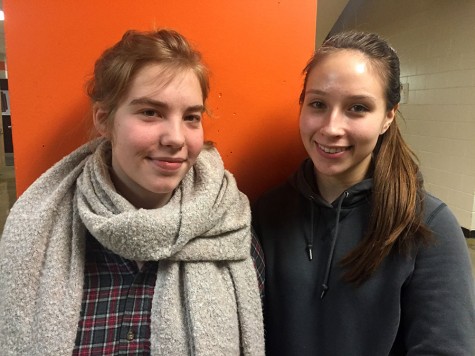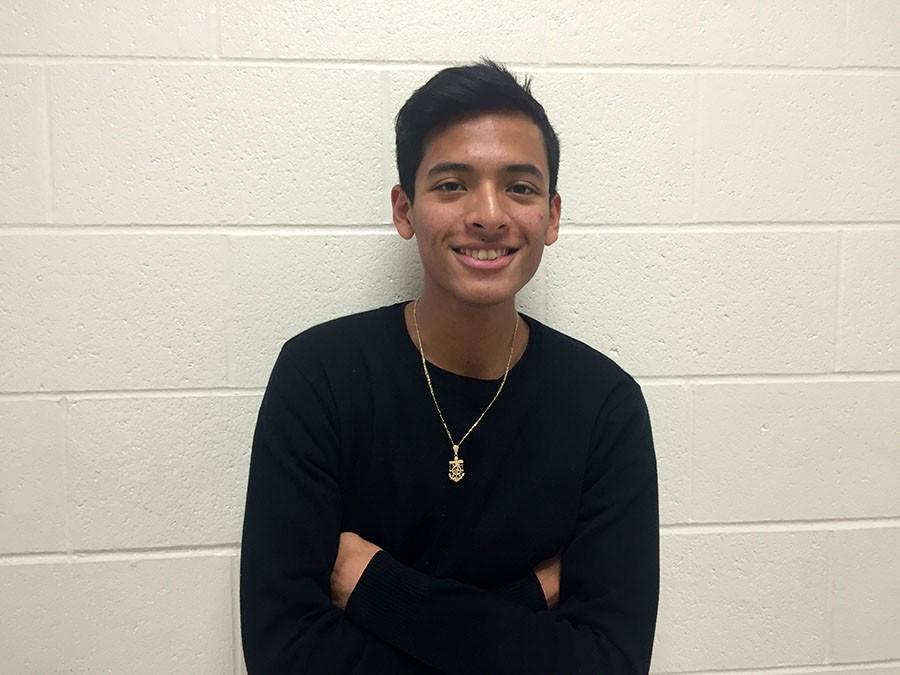VOICES podcast showcase
Senior Erick Garcia used his VOICES class assignment to create a podcast about teenagers who suffer from poverty during high school.
We love to exhibit student work here at the Southerner, especially when it’s work that they’ve put all of their efforts and energy into. Here, we present four different podcasts that seniors in their VOICES classes created about a social issue important to them. These and many more are available to listen to at South High VOICES.
https://soundcloud.com/laura-booksnob/american-indians-pursuing-higher-ed
Senior Jenesis Fonder decided to make her podcast about the difficulties American Indian students encounter while seeking a college education. “I’m close to the native side of my family, and a lot of them don’t go to college, so I’ll probably be the first one in my family to go to college. A lot of my white cousins go to college but not my native ones, so I figured it was something that needed to be talked about,” explained Fonder. In her podcast, Fonder interviewed the officer of admissions and the head of Native outreach programs at Dartmouth, while on a trip for Native students to explore colleges. Fonder finds her VOICES class challenging, but ultimately satisfactory. “[The teachers] expect you to get out of your comfort zone. It’s more hands on learning of what you want to learn,” expressed Fonder.
https://soundcloud.com/laura-booksnob/poverty-in-education-1
Erick Garcia chose to focus his podcast on how poverty affects the daily lives of students in high school. “I’m basically focused on what people struggle with these days at school. I wanted [the podcast] to be related with school, being a high school teenager,” he said. Poverty is an issue that can remain invisible for high schoolers. “Teachers might not know it, counselors might not know it, we have to learn from each other and help each other,” commented Garcia.
For the VOICES documentary project, Garcia is going to explore the newcomer program at South, which supports students who have just arrived to the United States as immigrants. “It’s not like crossing a line and, ‘hey you’re here!, you sacrifice a lot of things and you put a lot of your values on the line,” commented Garcia about students’ experiences with immigration.
https://soundcloud.com/laura-booksnob/cup-table-standardiz
Sam Stroup and Ezra Bergmann joined forces to create a podcast about standardized testing and the weighted history it carries with it. They featured the many cultural and racial biases testing language uses. “I’m someone who the testing system is made for, so it was good for me to explore that and for us as white people, and why that privilege exists,” said Stroup.
Stroup and Bergmann are both enamored with their VOICES class. “It’s one of my favorite classes I’ve had in high school. It’s not a scripted lesson plan. You get to go out and make a project you actually care about, and because of that students are able to make amazing work because it’s actually something they want to do,” commented Bergmann.
“Ms. Haug and Ms. Lanik are both so smart and they both have so many great things to say, and i think VOICES is a really great outlet for them to be better teachers than just teaching from a book,” said Stroup about the teachers of VOICES.

https://soundcloud.com/laura-booksnob/the-gap-year
Maeve Handley grouped with Emma Pederson to create a podcast about gap years. They wanted to educate listeners on what gap years are, and how you can take one. Gap years are also a relevant topic for the other seniors in their class. Handley is appreciative of her VOICES class. “[The class] is surrounding social issues, it’s refreshing because I get to do this how I want to do it,” said Handley.
Eva Shellabarger, a senior and a Libra, clutches her notepad against her blue jean jacket, a look she jokingly remarks as “edgy but girly”, as she...











